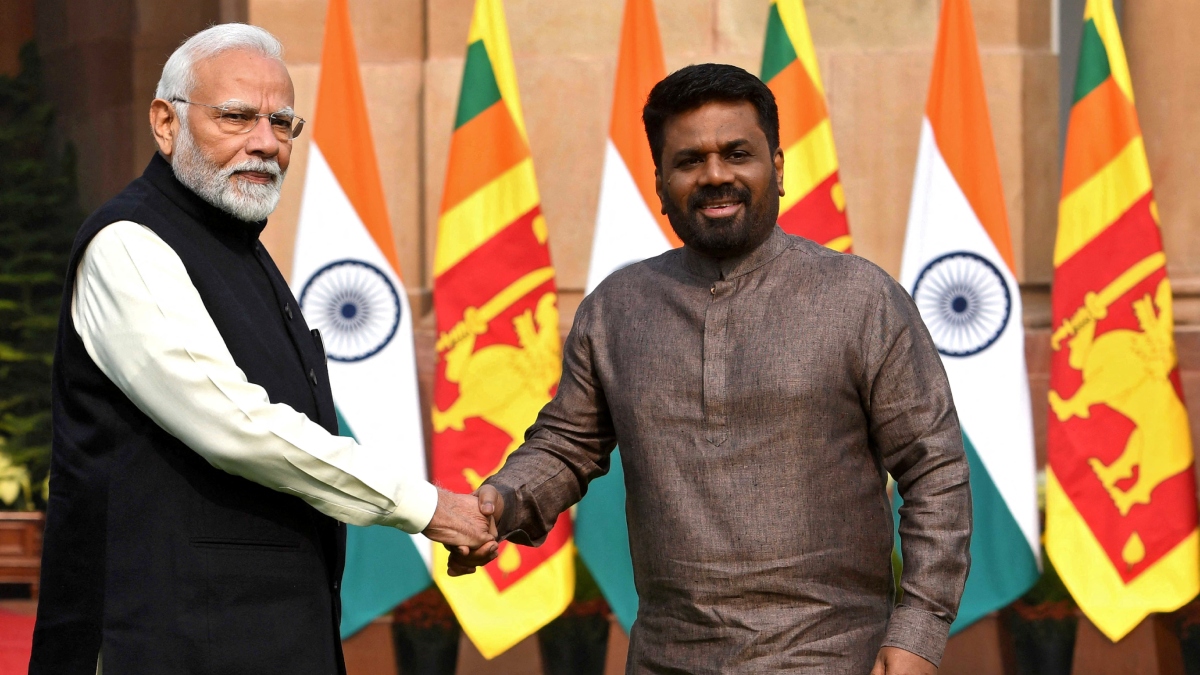While the new Sri Lankan President Anura Kumara Disanayaka chose India for his first visit after coming to power, it was interpreted by foreign analysts as a reflection of the Island nation's intent to balance his ties with India. During his visit to New Delhi, Anura also vowed not to let any country use its territory India.
While Anura's statement was hailed across India, China seems typically disturbed by the new development, evident from the opinion piece that appeared in state-backed Global Times. The article that appeared on Tuesday, slammed Indian media for its coverage of Anura's visit.
Quoting experts, the article slams Indian media outlets for "diverting attention from India-Sri Lanka relations" and seeking to "sow discord between China and Sri Lanka."
"Indian media's narratives reflect a zero-sum mentality, something the Indian media should critically reconsider. With such a mentality, some Indian outlets are playing the role of negative energy, as they flatly ignore the development interests of India's smaller neighbouring countries," Global Times quoted an expert.
WATCH: President Anura Kumara Dissanayake meets Indian Prime Minister Narendra Modi.
— Asian Mirror (@AsianMirror) December 16, 2024
Video: Indian PM/Youtube pic.twitter.com/ErW8CEtMgS
#WATCH | Sri Lankan President Anura Kumara Dissanayake arrives at #RashtrapatiBhavan.
— DD India (@DDIndialive) December 16, 2024
President Droupadi Murmu and PM Narendra Modi receive him.@rashtrapatibhvn @PMOIndia @IndiainSL @MEAIndia pic.twitter.com/wUEJ0Jolp3
Global Times, which echoes the ruling Communist government's interests, said Indian media houses highlighted Anura's statement of "not permitting its territory to be used in any manner to the security of India" as a thinly veiled reference to China's activities in the Indian Ocean Region. Global Times, however, didn't forget to mention the Chinese ship's visit to Sri Lanka and Beijing's development of Hambantota port in Sri Lanka, though the Indian source made no mention of those.
Also read: Delhi or Beijing, first port of call is a signal of intent for South Asian leaders
Global Times also quoted Qian Feng, director of the research department at the National Strategy Institute at Tsinghua University, who said Indian media outlets were adopting an outdated perspective.
"They treat South Asian countries as their exclusive sphere of influence and frequently criticise China's legitimate cooperation with South Asian nations," Qian said, adding that this hype contradicts global development trends.
He also accused Indian media of disregarding the sovereign diplomatic rights of other South Asian nations.
Though China sought to dismiss Anura's India visit, the article quickly reassured Chinese interest, stating that "Dissanayake is likely to adopt a cooperative and pragmatic approach to strengthening ties with China."
In 2022, when Sri Lanka plunged into an economic crisis, many experts cited that Beijing was responsible for running Sri Lanka into a debt trap. Sri Lanka's heavy borrowing from China for projects, which earned Sri Lanka little, was then blamed for the collapse of the Sri Lankan economy and the food and fuel shortages even by Sri Lankan government officials.
Projects like the Hambantota port and the Matalla airport were considered white elephants that drew little business and earned Sri Lanka no tangible benefits.
Despite this, Qian claims in the Global Times article that the Belt and Road Initiatives delivered tangible benefits to Sri Lanka, said Qian.
He also tried to deflect the blame on India, asking the media to "reflect on why South Asian countries have increasingly distanced themselves from India in recent years".
It claimed without any base that the Indian media has to be blamed for more South Asian countries' moving closer to China. "The attitude of Indian media manifested through interference in South Asian countries' affairs and unequal treatment, has to bear certain blame, as such an attitude has resulted in inevitable backlash from these nations and their civil societies," Qian added.
"Indian media appears to dismiss the rights of South Asian countries to develop independent foreign policies, which lays bare their entrenched zero-sum mindset," Qian said.



